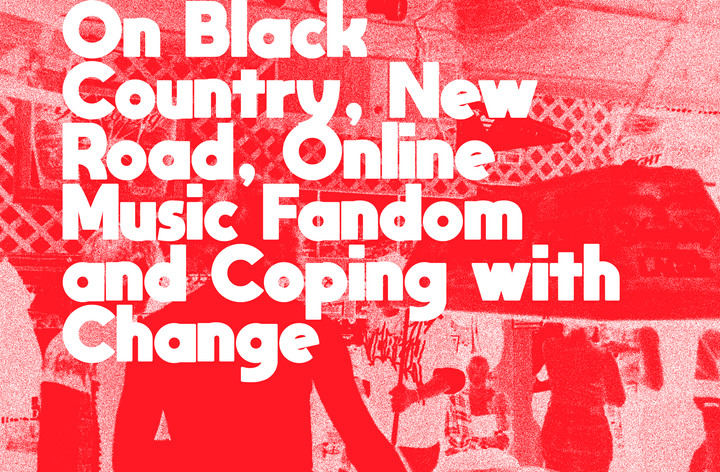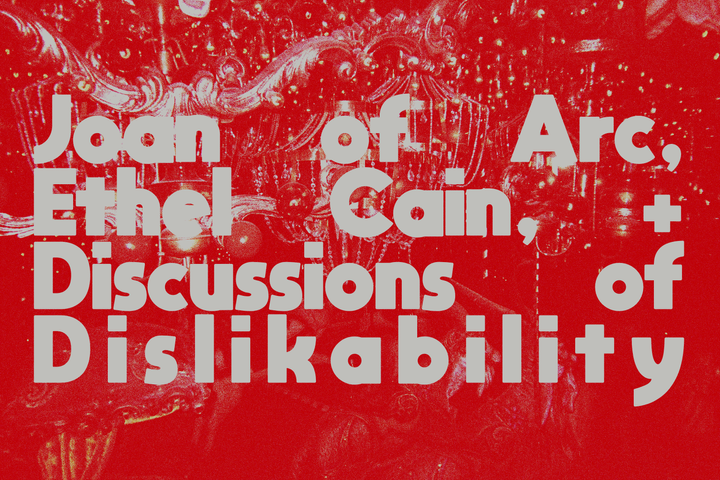on for emma, forever ago by bon iver
reckoning with being seriously moved by a bon iver record and the concept of passive shared experience

Often when I sit down to write one of these newsletters about an indie band from 2005 to 2015 my general thoughts are, "okay this is fine I guess" or "ehh I guess you had to be there" and I can't make a newsletter out of that. I kind of expected to have a similar experience with Bon Iver. People seem to cherish it so much that there's no way it's by virtue of the music itself.
Bon Iver isn't a band that I've ever spent much time with. The Birdie cover of "Skinny Love" was everywhere for a while when I was a teenager. I listened to (and enjoyed) i,i when it came out in 2019. That's about all I had. I put it on my list of things to listen to and see if I had any thoughts. I wasn't expecting much, but wrote a little jokey intro anyway in case I did.
Then I listened to it and, in the year of our lord 2021, I had a beautiful, emotionally moving experience listening to Bon Iver.
Now, there's nothing wrong with that, but I had to scrap my whole intro because I had genuinely been moved. I was moved to the point that I wasn't sure how to write about this album. Normally the whole schtick is to try to understand what it is people are connecting to. If I can do that, wonderful. If I can't, well I'll make some jokes and try to understand why I can't. It's a valuable exercise regardless of outcome. Usually there will be A Song that hits me and I get it.
This time, though, there was this immediate, all consuming understanding. It felt less like listening to an album for the first time and more like the first time I saw a Mark Rothko painting in real life. Arresting, beautiful, overwhelming. I didn't know what to do with that feeling and couldn't bear to write a newsletter that was just like, "huh! fuckin good record!"
So I just put it down until today.
This weekend I went to see The French Dispatch alone. I thought the film was pretty and charming and funny– though not as funny as the two men in front of me who gave out belly laughs at things that were smile inducing at best. I like Wes Anderson. I think his movies are comforting the way sitting in your grandparents' house talking to your cousins about family gossip the day before a holiday is comforting. That feeling of being just outside your reality is the charm of the experience. Almost real life, but not quite.
I took the train to the theatre and stopped at a bar on the way back to my train home. I had two drinks. One was what I ordered, the next was not. The incorrect drink was still nice, so I didn't comment on it. I read some of a book I've been rereading and looked at myself in the mirror behind the liquor bottles. It was dark and the bartenders were nice. A friend of one of them was sitting next to me and they'd talk when there were lulls in orders.
Doing things alone is nice. Seeing movies alone is nice. Having a drink alone is nice. Walking to the train listening to music alone is nice. Going to a museum alone is nice. Of course, what makes these things nice is that you're not alone. It's the active choice to be with others passively that makes these experiences feel warm and special.
While I was walking to the train I was considering that feeling of passive connection and finally returned to For Emma. I listened to it on the train and then another time as I made myself dinner. Both times induced the same wave of feeling I felt a few months ago.
Even a song like "Skinny Love" that almost feels trite to discuss at all because of the ubiquity of its lyrics can feel special and encompassing. For the most part, though, it's the tone and all the little nuances that put it ahead of most of its contemporaries. There is so much space given to each of the songs. It's patient and wide open and almost painfully pretty. It also doesn't feel like an album that is self conscious or self aggrandizing in its emotionality. I don't like when an album feels engineered to be sad and this one feels organic. It's more Transatlanticism than it is Plans in that way.
It's a beautiful record. You didn't need me to tell you that.
As I return to For Emma, I find myself recognizing a feeling of passive connection in the way I enjoy it. So much of the way I learn to love a piece of music is rooted in the social aspect of it. My favorite Trace Mountains song is the one I danced to with my friend at a party. My favorite Menzingers song is the one I shared with a person I loved. My favorite PUP song is the one I yelled in my car when that relationship ended. My favorite Death Cab For Cutie song is the one my dad played the loudest. Rarely does music that moves me most do so by virtue of the music alone.
Here, though, it isn't really either of those. It's not direct impact of my life that is giving the music meaning, but it's not exclusively the virtue of the songs themselves either that I'm feeling deeply about. It's somewhere in between.
To know of an album's cultural weight and reputation can be a hindrance– or at least an intimidating fact– but for the first time in this exercise of listening to important albums, there is zero feeling of "You Had To Be There." It just makes sense that people hold it close. It's improved by knowing its weight. That weight makes For Emma feels more like sitting in a movie theatre surrounded by strangers or listening to your bartender talk to their friend visiting them at work about something you aren't privy to or standing in a room of art while security guards look on. It's not an active sociality, but an active choice to be a part of an existing world and that's what adds to the music itself.
It's an interior experience, but it's not totally private.
I've enjoyed reading about the album in a way I rarely care to read about albums I love. Whether that's because of how open Justin Vernon has been about the content or the way I see people talk about it, it just feels like an album that was always meant to have a life outside of itself.
I'm happy an album finally made me feel like the things people say about it truly make sense. I guess that's what it comes down to.
Also, "Creature Fear" is the best song on the album and maybe the best turn of phrase ever penned.
Miranda Reinert is a music adjacent writer, zine maker, and law school drop out based in Philadelphia. Follow me on Twitter to hear about music in a less earnest way: @mirandareinert. I also have a paid tier of this newsletter for $5 a month or $45 a year! If you do that I'll give you at least one free zine if you respond to this email with a mailing address! Wow! Might want to get in on that! You may also just send me small bits of money at @miranda-reinert on venmo if you want. But as always, thanks for reading!



Comments ()